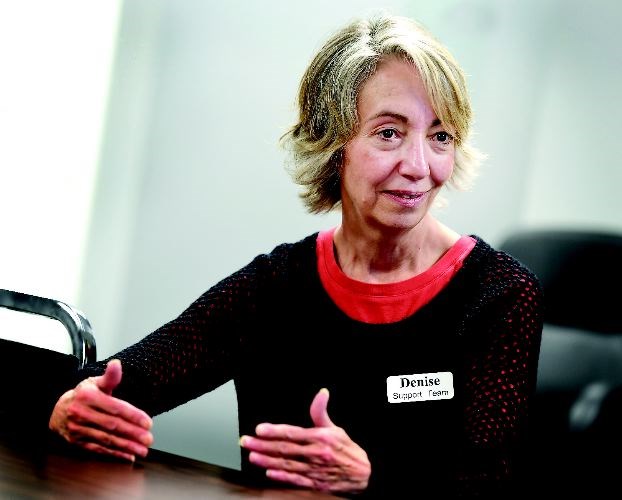Realizing that very few men were attending the grief support programs provided by the Prince George Hospice Society for the last 30 years, a support team staff member decided to approach the grieving process from a different angle.
There are two main kinds of grieving, intuitive and instrumental.
An intuitive griever will talk, emote, and share to grieve, while an instrumental griever might not even be recognized as grieving as they act upon it, setting up a legacy fund, a scholarship, renovate their home, or go for walks - things not traditionally known as acts of grieving.
"Just because they're not crying, it doesn't mean they're not in pain, they're just grieving in a different way," said Denise Torgerson, support team member, who volunteered at Hospice House for 11 years before taking a paid position with the society three years ago.
Everyone fits somewhere on the spectrum between intuitive and instrumental grieving and most men lean toward the instrumental.
"It's action oriented and what happens to those instrumental grievers is they are not recognized as grieving," said Torgerson.
Sometimes an intuitive griever will take action while an instrumental griever will find that safe place to talk, she added.
Torgerson created the Grief and Grub eight-week program more than a year ago where men 19-plus are invited to grieve in a way best suited for them. The program sees men gather to chat and enjoy a meal, with guidance from two facilitators who cook comfort food like mac and cheese, pork roast, lasagna or ribs and provide brief education sessions to assist in the grieving process.
For Torgerson's efforts in creating the program, Northern Health nominated the non-traditional program for a BC Patient Safety & Quality Council award called the Quality Award for Coping With The End of Life. The Grief and Grub program is runner up.
"I was surprised the program was recognized as innovative," said Torgerson.
"It never occurred to me that people weren't doing it. This is a hole and we need to fill it. I'm really happy for me and for Hospice that it is getting recognition and hopefully a man out there will read an article about this and realize that he is allowed to grieve."
Torgerson will attend a gala in March in Vancouver to receive the award.
During the Grief and Grub program, men are encouraged and supported.
"Instrumental grievers are also kind of future focused, not past focused," said Torgerson. "Each session is about 10 minutes of education that includes a different look at grief and grieving style."
At the beginning of the meeting, everyone gets to talk and then there's supper and that's the big thing, she added.
"Often in that check in there's a lot of intensity that comes up so the dinner brings everybody back to the present and we talk about food and they talk about whatever they want to talk about," said Torgerson.
There's been between two and eight men who have attended each of the five sessions held so far.
The education piece assures everyone that what they're going through is a natural process.
"And they're not broken and they're not wrong and then we have conversation around that and then there's a check out at the end," said Torgerson. "Everyone gets to talk if they want to. It's lovely to see men care for each other."
Other grief programs offered at Hospice include Rainbows, Tea Time for the Soul and Broken Circle.
For more information, go online to: www.hospiceprincegeorge.ca.



